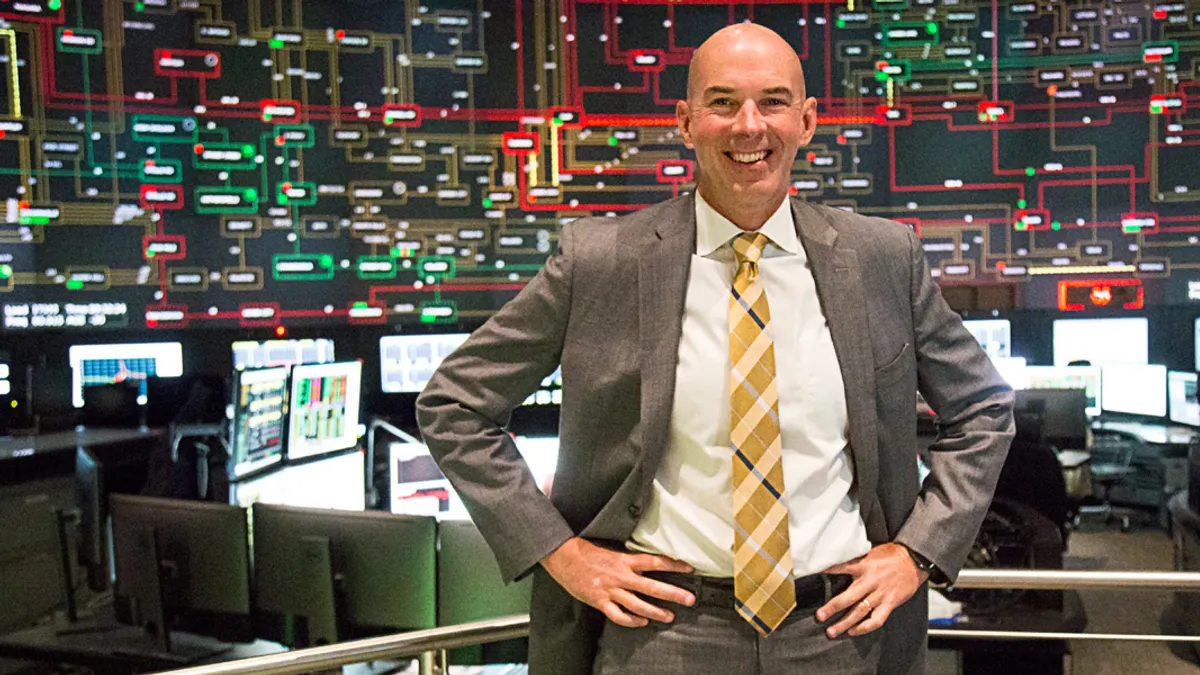Dive Brief:
-
New York's grid operator is hoping a highly-anticipated carbon pricing conference will convince federal regulators that carbon pricing is the most efficient way for the wholesale power markets to support state decarbonization goals.
-
In response to increasingly aggressive state decarbonization objectives, "the markets are going to need to change" if they want to be a part of that transition, the New York Independent System Operator's (NYISO) President and CEO Richard Dewey told reporters Monday.
-
NYISO is the only wholesale market to have a carbon pricing plan in the works, and is still awaiting New York's approval before it can move forward, though a survey released Monday found increased state support for the mechanism.
Dive Insight:
Though NYISO is the only grid operator thus far to have a plan on carbon pricing moved along as far as it has, Dewey said other markets are keeping an eye on the state's progress.
"I know that other grid operators are viewing it very much the same way, where they're starting to recognize increasingly as states adopt more aggressive progressive policies towards the environment and climate change that increasingly, they're looking at the utility sector, the electric sector to help lead them there," he said. "Markets are going to be in the center of all of that. And it's just a matter of are they going to be in the way, or are we going to be using them as the vehicle to lead us there?"
The grid operator hopes that during the Federal Energy Regulatory Commission's carbon pricing conference, scheduled for Wednesday, commissioners will see carbon pricing as a part of regulators' "clear responsibilities under the Federal Power Act" to put market fairness and efficiency "front and center."
FERC announced it would hold a technical conference on carbon pricing in June, and stakeholders expect part of the conversation to focus on whether the commission has the legal authority to implement carbon pricing in the first place.
"Certainly some of my colleagues will be raising those questions," Chairman Neil Chatterjee told reporters after the conference was announced, adding he expected the technical conference to be a "lively exchange."
In order to implement its own carbon pricing proposal, NYISO would need to file for changes under section 205 of the Federal Power Act, which requires a stakeholder process where a supermajority of 58% or more would have to approve the plan.
NYISO has not taken that vote yet and won't until it's certain it has the governor's and state's backing, said Dewey, since the state would be setting the social cost of carbon.
"That's one of the sort of the underpinnings of the design is New York State will set the social cost of carbon, so we need to know that they are with us on this. And we're still waiting for that response," he said.
NYISO's proposal would have New York set the social cost of carbon, and have fossil fuel plants pay that amount based on the carbon they emit. NYISO first issued a draft proposal in 2017, and in 2019 the state passed its clean energy law that now requires the state to reach 100% zero-emissions by 2040, with an interim renewable portfolio standard of 70% renewables by 2030.
The grid operator is in ongoing discussions with New York about its proposal.
"I think they want to make sure that the approach that we're taking is the most effective means for New York State to hit their goals," said Dewey. "I think there's the recognition that these goals are going to be really hard to hit. And we all need to be working together."
The proposal should eliminate the need for other subsidies, he said, but "as we go out into the future, there very well may be needs for additional incentives … we've designed this with the understanding that this could be compatible with [any] program that the state might have."
Offshore wind, for example, will likely still need renewable energy credits (RECs) because of its nascency in the market, he said.















